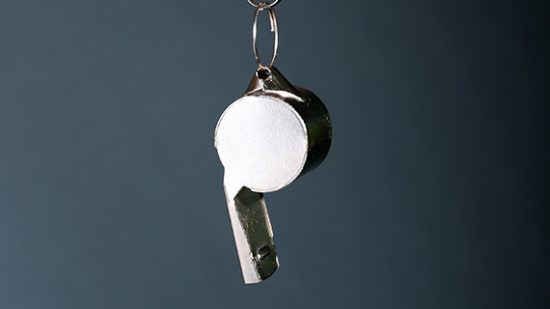
By: Robert Connolly (Cartel Capers)
The Department of Justice has recently introduced a series of pilot programs aimed at encouraging “insiders” to expose crimes, particularly financial ones. The first initiative, announced in March 2024, is a Whistleblower Pilot Program that offers financial rewards to whistleblowers in certain circumstances (See DOJ Announces New Whistleblower Pilot Program, Cartel Capers, March 14, 2024). More recently, on April 15, 2024, the DOJ’s Criminal Division unveiled another pilot program, the Criminal Division Pilot Program On Voluntary Self-Disclosures For Individuals. This program aims to offer potential non-prosecution agreements to “little fish” who come forward with “original information” about misconduct by “big fish.”
The Whistleblower Pilot Program is a promising development for criminal cartel enforcement. The Antitrust Division already has an Individual Voluntary Discovery Program.
Individual Leniency–Voluntary Self-Disclosure for Individuals
The Antitrust Division has a longstanding program similar to the Criminal Division’s new pilot initiative, known as the Individual Leniency Program. Announced in 1993 alongside the successful Corporate Leniency Program, the Individual Leniency Program is infrequently used and often forgotten.
DOJ Manual- 7-3.330 – Individual Leniency
“Leniency will be granted to an individual reporting their participation in illegal activity before the Antitrust Division has begun an investigation.”
A key condition, similar to the pilot DOJ disclosure policy, is: “At the time the individual reports the illegal activity, the Antitrust Division has not received information about the illegal activity from any other source.” The primary reason for the program’s underuse seems to be financial. Individuals often cannot afford the expense and risk of engaging in the leniency process without corporate backing. Negotiating leniency, especially individual leniency, is a complex and prolonged process, often requiring significant legal counsel, which is costly.
Individuals, uncertain about the information the Antitrust Division might already possess, are hesitant to come forward without experienced (and expensive) antitrust attorneys. This process typically involves numerous interviews and travel, making it financially burdensome. Even if conditional leniency is granted, the individual must remain available to the Division for many years, incurring ongoing expenses. Without employer support to cover legal fees, this can be prohibitive, particularly as the individual is likely unemployed and potentially unemployable in their industry.
The expense is a significant barrier to utilizing the Individual Leniency Policy, which is a valuable insight for the Pilot Whistleblower Program. Potential whistleblowers might be similarly deterred by the prospect of substantial legal fees, even when motivated to do the right thing…
Featured News
Belgian Authorities Detain Multiple Individuals Over Alleged Huawei Bribery in EU Parliament
Mar 13, 2025 by
CPI
Grubhub’s Antitrust Case to Proceed in Federal Court, Second Circuit Rules
Mar 13, 2025 by
CPI
Pharma Giants Mallinckrodt and Endo to Merge in Multi-Billion-Dollar Deal
Mar 13, 2025 by
CPI
FTC Targets Meta’s Market Power, Calls Zuckerberg to Testify
Mar 13, 2025 by
CPI
French Watchdog Approves Carrefour’s Expansion, Orders Store Sell-Off
Mar 13, 2025 by
CPI
Antitrust Mix by CPI
Antitrust Chronicle® – Self-Preferencing
Feb 26, 2025 by
CPI
Platform Self-Preferencing: Focusing the Policy Debate
Feb 26, 2025 by
Michael Katz
Weaponized Opacity: Self-Preferencing in Digital Audience Measurement
Feb 26, 2025 by
Thomas Hoppner & Philipp Westerhoff
Self-Preferencing: An Economic Literature-Based Assessment Advocating a Case-By-Case Approach and Compliance Requirements
Feb 26, 2025 by
Patrice Bougette & Frederic Marty
Self-Preferencing in Adjacent Markets
Feb 26, 2025 by
Muxin Li